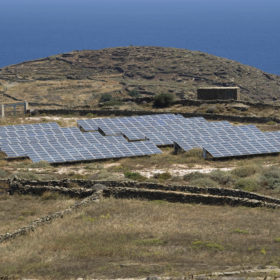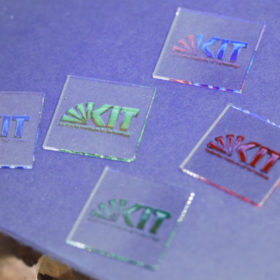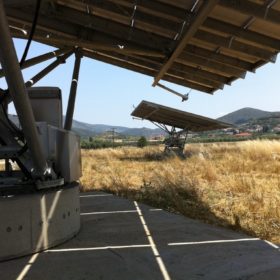Greece plans to tender extra 300 MW of solar in July
The energy ministry has published a plan for renewables auctions for this year and next. Under the program, Greece’s energy regulator has announced the next PV tender will take place in the summer.
PV hits lowest tariff in Greece’s first solar-wind tender: €0.053
Solar power has broken two records. It offered the lowest tariff in Greece’s first joint PV-wind tender – a payment level that is also the lowest ever awarded a Greek PV project.
Greece’s first joint PV-wind auction will tender 600 MW of capacity next month
Energy regulator RAE has announced the country’s first joint solar and wind energy auction, which will be held on April 15.
European researchers want to develop digitally printed, highly efficient and stable perovskite PV modules
German and Greek scientists are working with industrial partners on the technological feasibility of making solar modules based on perovskite absorbers. The prototypes should be freely configurable in size, shape and color.
Greece adds just 41 MW of solar in 2018
The amount of new PV added by Greece in 2018 is tiny but signals the sector has been restarted, mainly thanks to renewable energy tenders. However, significant challenges remain when it comes to meeting a 2020 solar energy target.
Europe moves further towards large-scale battery cell production
More than a dozen European ministers of economic affairs have released a statement setting out the next steps to turn Europe into an industrial hub for large-scale cell production. The role of SMEs and competition was highlighted as ministers said European cells should provide innovation in terms of raw material use and sustainability, hinting at a pivot away from lithium-ion.
Greece awards 62 MW of small-scale PV, cancels tender for larger projects in the same day
Greece ran two separate tenders for PV on December 10. However, the Greek energy regulator has decided not to award the winners of the tender for large-scale farms, due to lack of adequate competition. The tender for the large projects will be repeated next year.
Greece’s next PV tender set for December 10
Greece’s energy regulator has postponed the date of the country’s next solar PV and wind power tender. It will now take place on December 10. The Greek regulator has also provided further details on the regulations governing the new tenders.
Greece to tender 194 MW of PV capacity
With the government needing to hit 300 MW of capacity before year end, December’s procurement exercise will go ahead despite anticipated complaints over its procedures.
Greece’s net metering installation figures disappoint
While the Greek Government is in the midst of rolling out a successful series of solar tenders, pv magazine examines the country’s net metering scheme, which was introduced in 2014.






